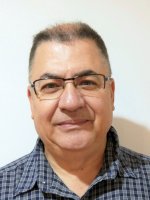The current technological advances are bringing forth analysis and design challenges that were either marginalized or unknown in the past. As a result, the existing formal tools for design and analysis are often overwhelmed by new problems. Nature-inspired computation offers alternative approaches that have been studied for decades. In particular, artificial neural networks (ANN) received considerable attention as a means to imitate the human brain’s resilience to imprecise, fragmentary and/or noisy information, and to solve classification and optimization tasks on the basis of analogy and generalization, as opposed to using predefined models. The tutorial will start by discussing some limitations of the current formal approaches for the study and design of complex systems, and how, by turning the problems to solve into classification or optimization ones, a nature-inspired approach may solve them. Then, an introduction to ANNs will be presented, along with the techniques to design and train them. Several case studies in signal and image analysis and circuit synthesis will be given for illustration.
Mounir Boukadoum
 Mounir Boukadoum is professor of microelectronics engineering at The University of Quebec at Montreal (UQAM), Canada. He studied physics in Algeria before switching to electrical engineering in the United States, with an emphasis on biomedical applications. He received the PhD degree in Electrical Engineering degree from The University of Houston, Texas. His current research covers the applications of artificial intelligence and nature-inspired techniques to analysis and design problems, particularly in relation to biomedical outcomes. Pr. Boukadoum is currently director of the Design and Fabrication of Microsystems research laboratory at UQAM (COFAMIC), president of the IEEE Computational Intelligence Society’s chapter in Montreal and executive member of the Quebec Strategic Alliance for Microsystems research consortium (ReSMIQ). He is an active member of IEEE and member of three IEEE CAS conferences steering committees. He is also a cofounder of the IEEE NEWCAS conference and Co-Chair of the 2018 edition in Montreal.
Mounir Boukadoum is professor of microelectronics engineering at The University of Quebec at Montreal (UQAM), Canada. He studied physics in Algeria before switching to electrical engineering in the United States, with an emphasis on biomedical applications. He received the PhD degree in Electrical Engineering degree from The University of Houston, Texas. His current research covers the applications of artificial intelligence and nature-inspired techniques to analysis and design problems, particularly in relation to biomedical outcomes. Pr. Boukadoum is currently director of the Design and Fabrication of Microsystems research laboratory at UQAM (COFAMIC), president of the IEEE Computational Intelligence Society’s chapter in Montreal and executive member of the Quebec Strategic Alliance for Microsystems research consortium (ReSMIQ). He is an active member of IEEE and member of three IEEE CAS conferences steering committees. He is also a cofounder of the IEEE NEWCAS conference and Co-Chair of the 2018 edition in Montreal.
